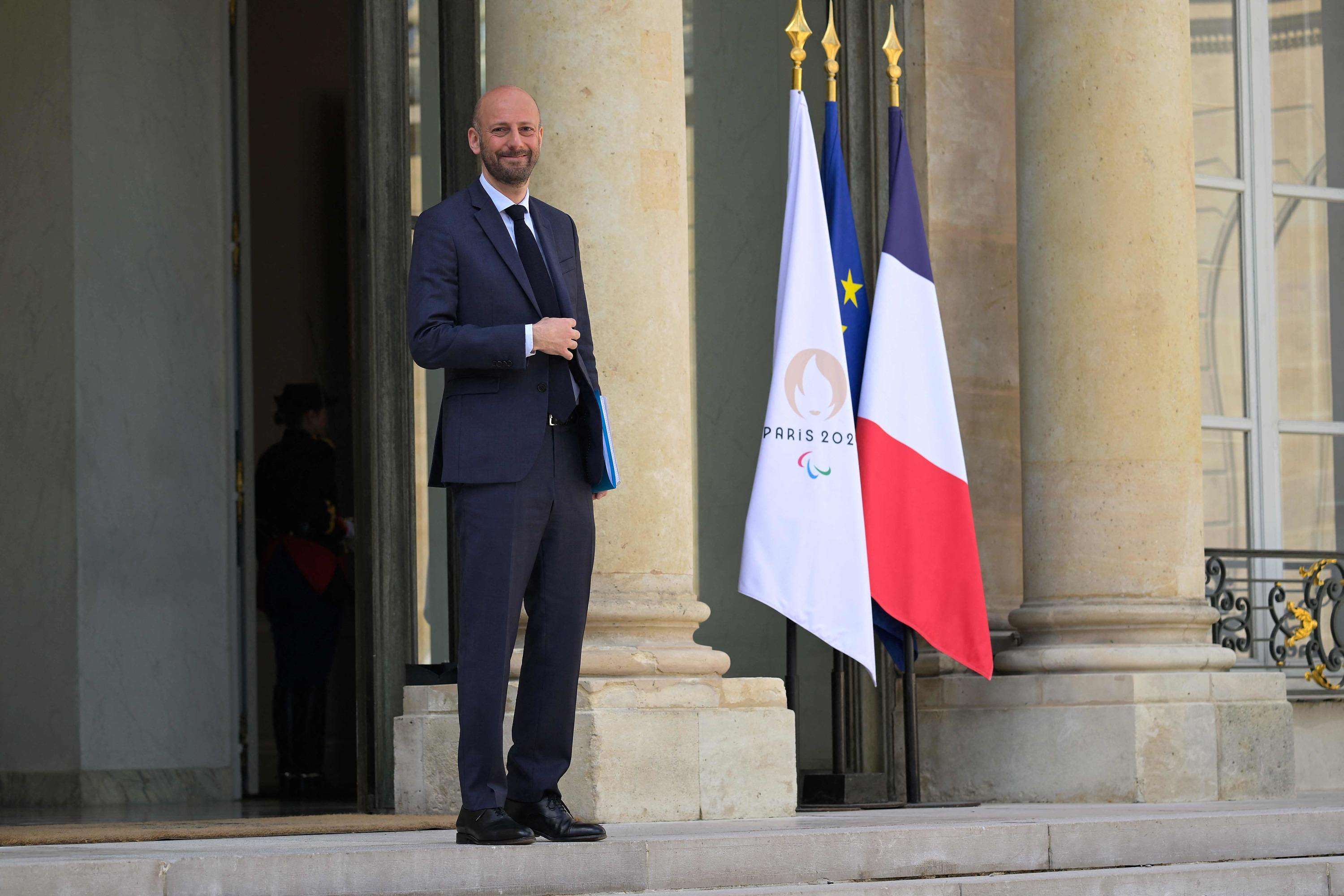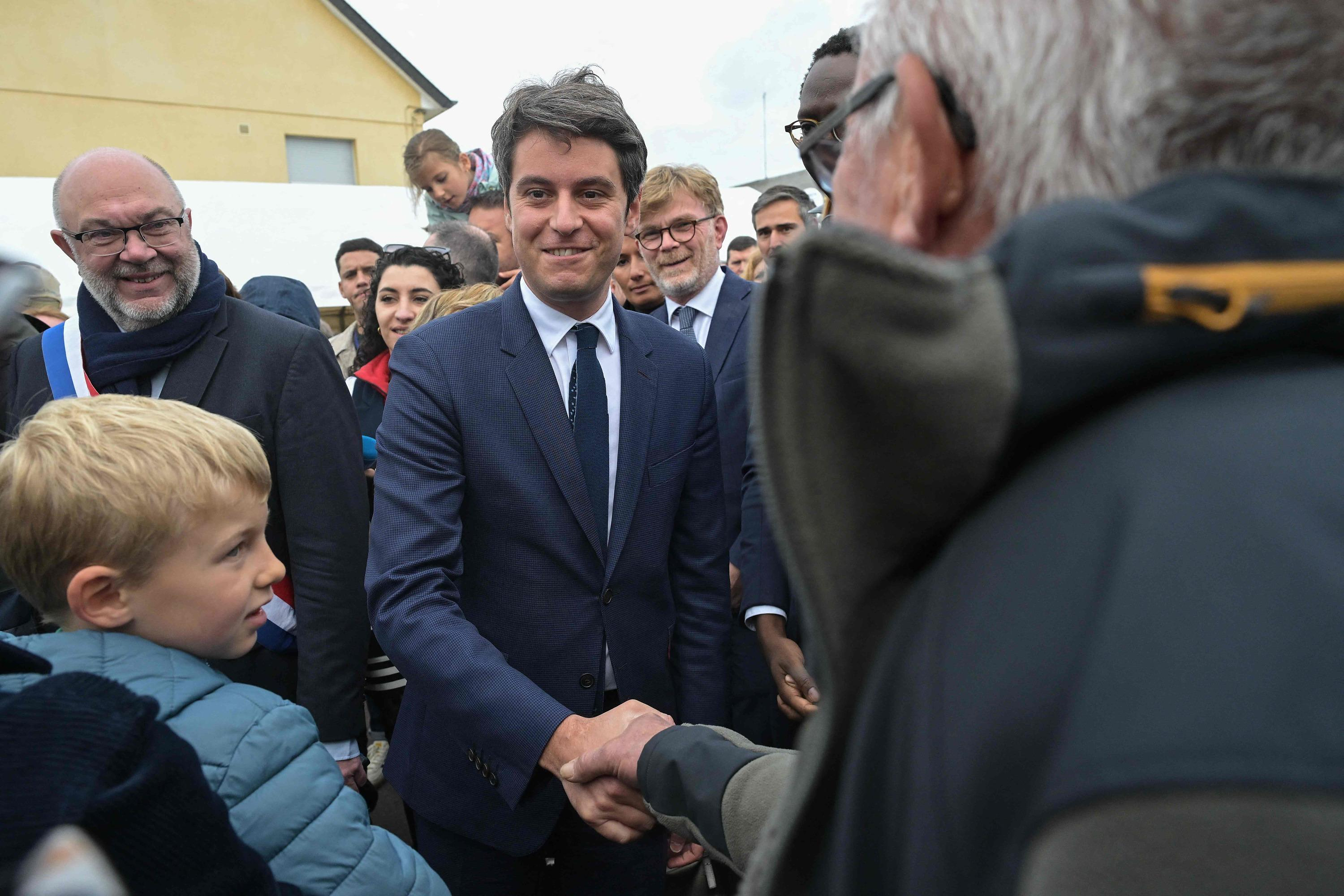The new houses on the outskirts of Norderstedt are finished, but the solar system is still missing. “The demand for photovoltaic systems has risen sharply across Germany,” says Moritz Hinck from the property company Manke. “The delivery times are getting longer, mainly because there are not enough inverters available. We expect to have our photovoltaic systems operational here in the second quarter.”
Solar power from your own house roof - this has been technically possible for decades, not only for the residents of single-family houses, but also in complexes with many rented apartments. However, it is only in recent years that the various models of “tenant flow” have really got going across Germany. The legislature put the brakes on this for a long time. Too many houses and settlements, some of which supply themselves with electricity, according to earlier fears, could jeopardize the stability of the electricity grid.
With the technologies available today, including digital ones, and with more precisely coordinated regulations on the electricity market, this is no longer a problem. And politicians are pushing for the construction of solar systems, including in Hamburg. Environment and Energy Senator Jens Kerstan (Greens) announced this week that the solar roof requirement from 2024 will be extended beyond new buildings to include the renovation of existing buildings. In the future, new solar systems are to be installed on 6,800 roofs in the Hanseatic city every year.
Marketing solar power directly to tenants is new for the Manke company and its subsidiaries based in Henstedt-Ulzburg. The partner in the new building project "Frederike" in Norderstedt is the utility company NWG Power from Hamburg. Around 70 of the 133 new apartments in eight houses can be supplied with solar power from the on-site photovoltaic system by NWG Power. “As much of the solar power as possible is used directly in the house. The tenants conclude an electricity procurement contract with us,” says Bernhard Rönsberg, co-founder and managing director of NWG Power. "The total electricity price is then around 20 percent below that of the basic supplier in Norderstedt."
With an annual power consumption of 2000 kilowatt hours in a "statistical model apartment" with two residents, the annual savings are around 200 euros compared to conventional electricity purchases, says Rönsberg. There are two main reasons for this: Photovoltaic systems produce electricity at a stable level at a relatively low price. Above all, however, they do not have to pay any grid fees for that part of their electricity that the tenants draw directly from the roof. Like the prices for electricity from fossil fuels, these too have risen sharply in recent times. "The proportion of directly used solar power - for which no grid fees are incurred - can be up to 60 percent here in this project," says Rönsberg.
A share of 60 percent of home-made electricity is high - other projects for tenant electricity or "direct electricity" buy significantly more green electricity from sources that are not exactly declared, in northern Germany especially from Norwegian hydroelectric power plants. Complete use of the solar power directly on site is not possible in residential complexes such as in Norderstedt. The apartments consume too little electricity during the day when the photovoltaic system is producing. Battery storage, on the other hand, is currently still considered uneconomical for apartment buildings. "Battery storage could increase the proportion of electricity used directly from the roof to up to 95 percent," says Rönsberg. “But such memory is still very expensive and only lasts a few years. Including storage can cost an additional 15 to 20 cents per kilowatt hour.”
NWG Power feeds that part of the solar power that the tenants do not use directly into the municipal grid. Tenants have to pay grid fees for that part of their electricity that they do not obtain directly from the solar system, but slightly less than with a standard electricity contract. NWG Power, in turn, considers all of the electricity that the company feeds into the municipal grid at various locations as green electricity - and markets it in its projects throughout Germany. "Driven by the energy crisis, the demand for tenant electricity projects is increasing rapidly," says Rönsberg. "We have been marketing tenant electricity since 2016 and are now operating 25 projects throughout Germany, from Bavaria to the north." One of the advantages for NWG Power: The plant in Norderstedt may belong to the company Manke Wohnen - but NWG Power wins as the operator but for the Marketing is important proof that you are generating green electricity yourself.
Lower energy costs are a strong argument on the housing market, which has been characterized by scarcity and sharply rising prices in recent years, and not just in Hamburg. Many Hamburgers have long been moving out of the city because they can no longer find affordable housing, given the average net cold rent of 15 euros per square meter in the Hanseatic city. Even in the houses of the Frederike new construction project on the northern outskirts of the small town of Norderstedt, the privately financed apartments cost 13 euros net cold rent per square meter. Care was taken to ensure that the construction of the photovoltaic system did not affect the rental price, says Janine Frerichs-Lechel from Manke Wohnen: "It is important to us that we make a contribution to the energy transition and climate protection. We are also pleased when our tenants have the opportunity to reduce ancillary living costs with sustainably generated electricity.”
As early as 2017, a report for the Federal Ministry of Economics calculated a potential of up to 3.8 million apartments that could draw tenant electricity from solar systems. “The legislature must further simplify the implementation of tenant electricity projects based primarily on solar power. The economic and ecological benefit for everyone involved is obvious," says NWG Managing Director Rönsberg. Technologically, the direct purchase of solar power could be further refined and thus increased: "The power purchase from the photovoltaic system is controlled with so-called 'intelligent measuring systems'," says Rönsberg about the system in Norderstedt. “Technically, each individual apartment draws the same amount of solar power, there is no prioritization of individual apartments or different amounts of consumption. Perhaps we will differentiate this even more precisely in the future.”
The Association of North German Housing Companies (VNW), on the other hand, does not consider solar systems on roofs to be ideal for supplying tenants with solar power for many reasons. The association currently represents 389 members in Hamburg, Mecklenburg-Western Pomerania and Schleswig-Holstein - housing cooperatives, municipal and socially oriented private housing companies and supporting members: "So far, there is no precise overview of the number of tenant electricity projects at our member companies," says VNW director Andreas Breitner. “The main reason for this is that until a few months ago the state framework was inadequate and the possible operator models were complicated. Although there are no grid fees, grid-side surcharges, electricity tax and concession fees, tenant electricity models cause additional work for the implementation and operation of the system, sales, metering and billing.”
Many managing directors and board members of its member companies "have therefore been rather reluctant to deal with such projects, especially since they are not the core business of housing companies," says Breitner. “The bottom line is that the implementation of a tenant electricity project must also be economical for the housing company. Giving other companies their own roofs selflessly for their 'tenant electricity' business model is not a convincing model.” A housing company has to decide in each individual case which of the various tenant electricity models works best “and who might be a suitable partner”.
The VNW is also relying on solar power for the future - but is pursuing a completely different path: "We are currently preparing to set up a power cooperative that will produce solar power on suitable large open spaces," says Breitner. “VNW member companies can become members of this cooperative and make the self-produced solar power available to their tenants at a reasonable price. This is likely to be a much more efficient generation method than generating electricity using numerous individual systems.”

 B:SM will break its investment record this year with 62 million euros
B:SM will break its investment record this year with 62 million euros War in Ukraine: when kyiv attacks Russia with inflatable balloons loaded with explosives
War in Ukraine: when kyiv attacks Russia with inflatable balloons loaded with explosives United States: divided on the question of presidential immunity, the Supreme Court offers respite to Trump
United States: divided on the question of presidential immunity, the Supreme Court offers respite to Trump Maurizio Molinari: “the Scurati affair, a European injury”
Maurizio Molinari: “the Scurati affair, a European injury” Irritable bowel syndrome: the effectiveness of low-carbohydrate diets is confirmed
Irritable bowel syndrome: the effectiveness of low-carbohydrate diets is confirmed Beware of the three main sources of poisoning in children
Beware of the three main sources of poisoning in children First three cases of “native” cholera confirmed in Mayotte
First three cases of “native” cholera confirmed in Mayotte Meningitis: compulsory vaccination for babies will be extended in 2025
Meningitis: compulsory vaccination for babies will be extended in 2025 In the United States, a Boeing 767 loses its emergency slide shortly after takeoff
In the United States, a Boeing 767 loses its emergency slide shortly after takeoff The A13 motorway will not reopen on May 1
The A13 motorway will not reopen on May 1 More than 1,500 items for less than 1 euro: the Dutch discounter Action opens a third store in Paris
More than 1,500 items for less than 1 euro: the Dutch discounter Action opens a third store in Paris 100 million euros in loans, water storage, Ecophyto plan… New measures from the executive towards farmers
100 million euros in loans, water storage, Ecophyto plan… New measures from the executive towards farmers Books poisoned with arsenic present in French libraries
Books poisoned with arsenic present in French libraries New York justice returns 30 works of art looted from Cambodia and Indonesia
New York justice returns 30 works of art looted from Cambodia and Indonesia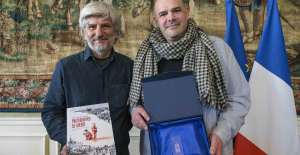 Les Galons de la BD dedicates War Photographers, a virtuoso album on the Spanish War
Les Galons de la BD dedicates War Photographers, a virtuoso album on the Spanish War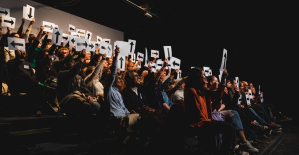 Theater: Kevin, or the example of an academic failure
Theater: Kevin, or the example of an academic failure Skoda Kodiaq 2024: a 'beast' plug-in hybrid SUV
Skoda Kodiaq 2024: a 'beast' plug-in hybrid SUV Tesla launches a new Model Y with 600 km of autonomy at a "more accessible price"
Tesla launches a new Model Y with 600 km of autonomy at a "more accessible price" The 10 best-selling cars in March 2024 in Spain: sales fall due to Easter
The 10 best-selling cars in March 2024 in Spain: sales fall due to Easter A private jet company buys more than 100 flying cars
A private jet company buys more than 100 flying cars This is how housing prices have changed in Spain in the last decade
This is how housing prices have changed in Spain in the last decade The home mortgage firm drops 10% in January and interest soars to 3.46%
The home mortgage firm drops 10% in January and interest soars to 3.46% The jewel of the Rocío de Nagüeles urbanization: a dream villa in Marbella
The jewel of the Rocío de Nagüeles urbanization: a dream villa in Marbella Rental prices grow by 7.3% in February: where does it go up and where does it go down?
Rental prices grow by 7.3% in February: where does it go up and where does it go down? Even on a mission for NATO, the Charles-de-Gaulle remains under French control, Lecornu responds to Mélenchon
Even on a mission for NATO, the Charles-de-Gaulle remains under French control, Lecornu responds to Mélenchon “Deadly Europe”, “economic decline”, immigration… What to remember from Emmanuel Macron’s speech at the Sorbonne
“Deadly Europe”, “economic decline”, immigration… What to remember from Emmanuel Macron’s speech at the Sorbonne Sale of Biogaran: The Republicans write to Emmanuel Macron
Sale of Biogaran: The Republicans write to Emmanuel Macron Europeans: “All those who claim that we don’t need Europe are liars”, criticizes Bayrou
Europeans: “All those who claim that we don’t need Europe are liars”, criticizes Bayrou These French cities that will boycott the World Cup in Qatar
These French cities that will boycott the World Cup in Qatar PSG: “Immense pride in continuing the adventure in Paris”, relishes Zaire-Emery
PSG: “Immense pride in continuing the adventure in Paris”, relishes Zaire-Emery Breaking: everything you need to know about this sport
Breaking: everything you need to know about this sport NBA: Lakers gain respite, Boston responds to Miami
NBA: Lakers gain respite, Boston responds to Miami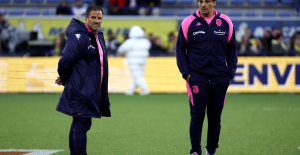 Top 14: “a very severe red card”, estimates Labit (French Stadium)
Top 14: “a very severe red card”, estimates Labit (French Stadium)





